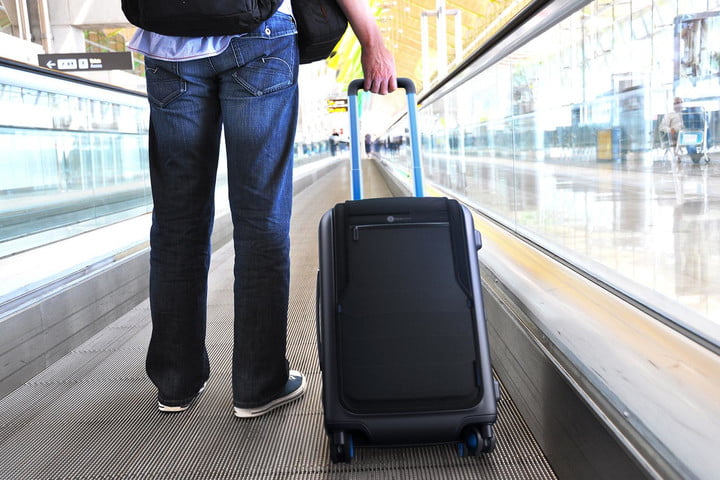
If you own any high-tech “smart” luggage and travel with it on planes, you may have a problem.
American Airlines, Delta, and Alaska Airlines announced on December 6, 2017 that if the battery is built into the luggage and cannot be removed, you won’t be able to take it onto the aircraft. United and Southwest Airlines joined suit shortly thereafter.
The ban became effective on January 15, 2018, and emerged due to fears that the batteries could overheat and catch fire.
To be clear, if the battery can’t be removed, you won’t be able to take it on board the plane as checked or carry-on luggage. If it can be removed, however, it can be left inside the bag and taken aboard as carry-on. Alternatively, you can remove it from the bag, check the bag, and then take the battery aboard as carry-on.
Alaska Airlines explains the policy in this way:
- Smart bags will be allowed as carry-on baggage, if they meet carry-on size limits, and if it’s possible to remove the battery from the bag if needed.
- If the bag will fly as a checked bag, the battery must be removed and the battery must be carried in the cabin.
- If it’s not possible to remove the battery from the bag, the bag won’t be allowed on the plane.
So-called smart bags, which have been growing in popularity over the last year or so, feature a variety of (battery-powered) tech features that can include anything from GPS capability so you don’t lose it, to built-in digital scales so you don’t exceed your weight limits, to a motor that turns it into a scooter so you can whiz through the airport to your gate. DT reviewed some of the best ones just a few months ago.
The new rule, alas, proved to be too great of a blow for outfits like New York-based Bluesmart, which originally came to prominence in 2014 with its debut smart suitcase that proved a hit with Indiegogo backers. It since produced a range of smart luggage options and sold 64,000 of them globally, but their batteries can’t be removed. And now, just a few months after the ban went into place, Bluesmart is shuttering its operations.
Noting that the ban placed the company in “an irreversibly difficult financial and business situation,” Bluesmart wrote in a blog post that “after exploring all the possible options for pivoting and moving forward, the company was finally forced to wind down its operations and explore disposition options, unable to continue operating as an independent entity.”
Happily, the firm notes that its technology will not be lost, as Travelpro has acquired “the majority of Bluesmart’s intangible assets (including our technology, designs, brand and intellectual property).” That said, if you have a Bluesmart product, it’s no longer supported or warrantied in any way, and the functionality and service quality of Bluesmart servers and apps will gradually be reduced.
“We are saddened by these latest changes to some airline regulations and feel it is a step back not only for travel technology, but that it also presents an obstacle to streamlining and improving the way we all travel,” Bluesmart said previously in a statement. While the company had plans to meet with the airlines to show its bags are safe in the hope that they would make an exception for their products, these talks apparently did not lead to positive outcomes.
Due to their fire risk, lithium-ion batteries have been a worry for airlines ever since the technology was introduced. The smart cases aren’t the first gadget to face an airline ban. Last year, the U.S. Department of Transportation banned Samsung’s troubled Galaxy Note 7 from being taken on planes, and before that bans were put in place for so-called hoverboards after some batteries inside the personal transporters suddenly exploded.
But banning a product whose very purpose is travel will come as a huge disappointment for the many travelers who’ve already spent money on the technology, and presents a worrying problem for other makers of smart bags, too.
Updated on May 1: A few months after the airline ban on smart luggage, Bluesmart has shuttered operations.


